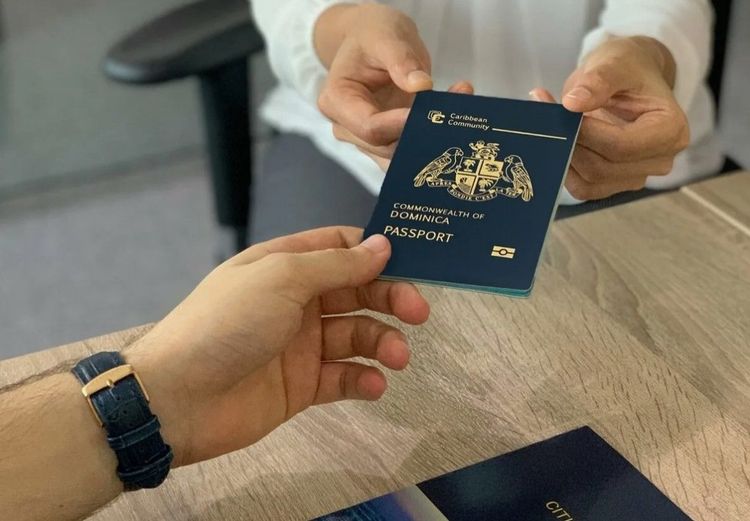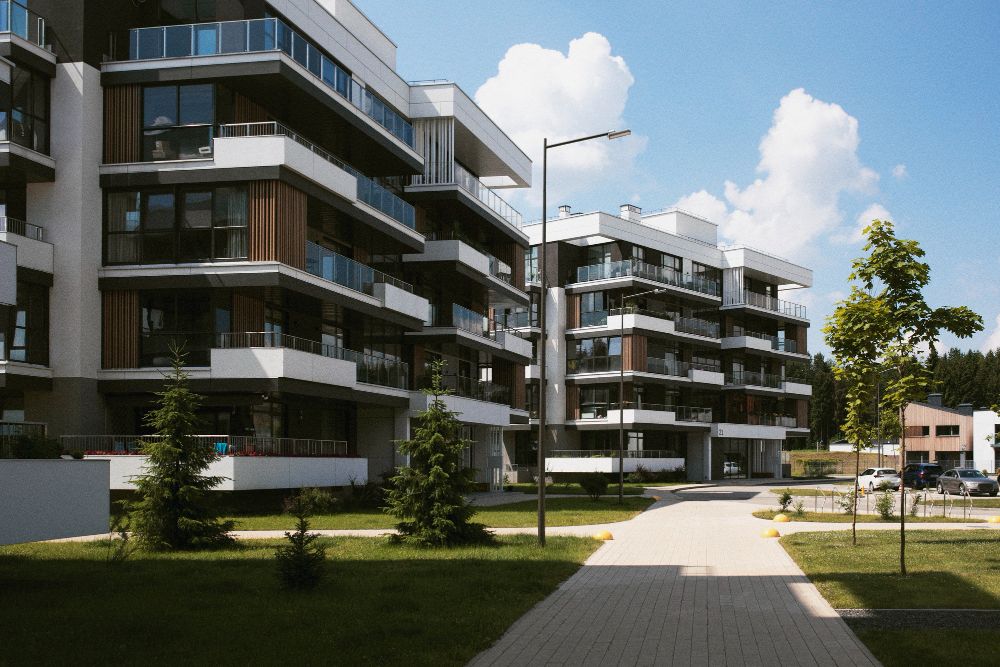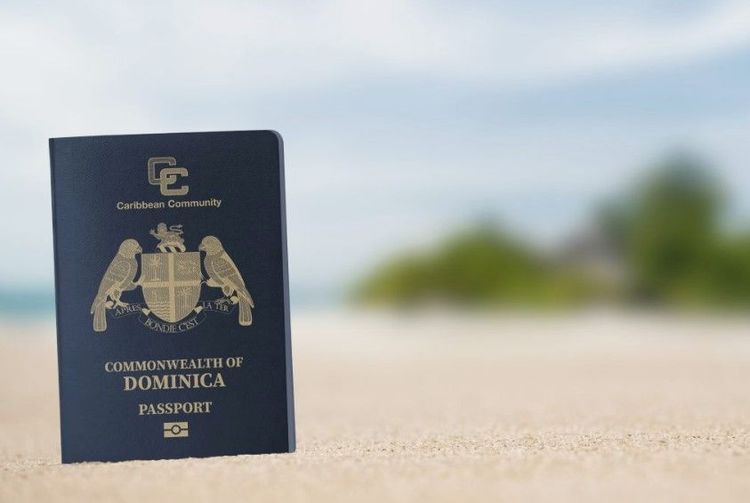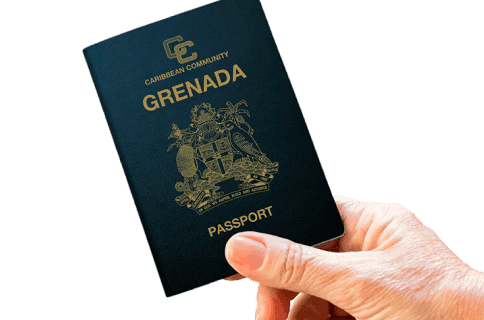Why Donations, Funds, and Bonds May Offer a Safer Path
For investors seeking an alternate residency or citizenship, real estate has long been a favored investment pathway to qualify for these programs.
Risks of Real Estate In Residency by Investment (RBI)
However, the inherent volatility and risks associated with property markets globally underscore why investment migration via donations or government bonds may be the wiser choice.
The current housing climate in nations like Hungary and Greece serves as a stark reminder of real estate's boom-and-bust cycles. Hungary's residential sector is mired in a severe downturn - its national house price index fell 15.6% year-on-year after inflation adjustments. Regional disparities are pronounced, with areas like Pest County seeing price plunges exceeding 35%.
This sharp decline follows a period of overheated price growth ranging from 10-25% annually in recent years.
Considering that Hungary has the option to invest €250,000 in funds or €500,000 in direct real estate under its Guest Investor Visa (GIV), investors should carefully consider which option suits them best.
Funds provide investors with higher ROIs and an easier exit plan. Considering the minimum investment is half that of real estate, then the fund option may quickly prove the superior option.

Similarly, Greece's housing market remains depressed over a decade after the European debt crisis. Property prices nationally have plummeted by approximately 42% from their 2008 peak, according to the Bank of Greece.
The Greater Athens area has been hit even harder, with cumulative price drops of 45.2%. Multi-year periods of economic recession, tight lending conditions, and elevated unemployment levels exacerbated the real estate slump.
Such volatile boom-bust cycles in housing markets are far from unique. The U.S. subprime mortgage crisis culminated in a 27% drop in national home prices from 2006-2012. Dubai's housing market witnessed a staggering 60% decline from 2008-2011 highs before rebounding recently. Real estate values across major cities like London, Hong Kong, and Vancouver have also swung wildly over periods of exuberance and subsequent corrections.
For investor migrants, these oscillations between pricing bubbles and busts create significant risks. A poorly timed real estate purchase, whether for personal use or solely for residence qualification, could quickly diminish in value.
This creates "negative equity" scenarios where mortgage debt exceeds the depreciated property value, making it difficult to profitably exit the investment.
In programs where a minimum holding period is stipulated, investors may be forced to absorb interim price declines over several years before being able to liquidate. This illiquidity distinguishes real estate from more liquid asset classes like government bonds or even equities during protracted downturns.
In contrast, investment migration programs centered around donations or government bond purchases tend to circumvent these risks altogether.
Once the qualifying donation is made, the investment amount is essentially "sunk" in exchange for the desired residency or citizenship - regardless of future economic conditions or market volatility.
Bonds will incur losses amounting to the rate of inflation, but this is easily navigatable for investors who deal on a global scale with assets throughout the world. The main investment amount is secure and will be returned as is, the only true loss is future value of money.
In some cases, the bond option may lead to "freezing" assets for some time or as long as they maintain their residency or citizenship, but government bonds provide a thick layer of security so they are excellent diversification tools for investors to use to protect their wealth.

For instance, Greece's residency through investment program requires either a €400,000 real estate purchase or a €500,000 investment into government bonds. In the latter case, the €500,000 bond holding is irrevocable; its principal is returned only upon surrendering residency rights. While capital preservation isn't guaranteed for any investment, bond holdings are insulated from cyclical real estate downturns.
One significant challenge in these locations is the oversupply of newer properties, which can make the acquisition and subsequent resale of second-hand homes more difficult. A considerable portion of RBI investments in Hungary and Greece have been directed towards newly constructed properties, leaving a glut of older residential units on the market.
For investors considering the purchase of second-hand homes, the oversupply situation can present obstacles. Owners of these properties may be reluctant to pay commissions to real estate agents, leading them to mark up prices to account for the additional costs. This can make second-hand homes less attractive from an investment perspective, as the higher purchase prices may impact potential returns.
Secondhand home sales in Hungary fell 64.7% year-on-year in Q1 2023 following a 17.6% decline in 2022, highlighting how hard it may be for an investor to sell their property in the future.
Additionally, the resale of second-hand properties acquired through RBI programs can be challenging due to the same oversupply concerns. Buyers may gravitate towards newer developments, leaving investors with second-hand units struggling to find interested parties willing to meet their asking prices.
Market cycles, oversupply concerns, and the potential for stagnant or declining property values could erode investment returns and undermine the long-term viability of the residency status obtained through real estate investments in these markets.

An alternative pathway that has gained traction, particularly in the United Arab Emirates (UAE), is the option of making a bank deposit to secure residency through the Golden Visa program.
This approach offers several advantages over real estate investments, including greater liquidity, portfolio diversification, lower entry barriers, and avoidance of carrying costs that come with property ownership.
Unlike illiquid real estate assets, bank deposits provide investors with the flexibility to access their funds more readily if needed, reducing exposure to market fluctuations. Additionally, a bank deposit represents a low-risk fixed-income investment, allowing investors to lower the concentration risk that comes with investing solely in real estate.
For foreign investors, bank deposits in UAE dirhams can also mitigate currency risk, as they are not subject to the same exchange rate fluctuations that can impact the value of real estate holdings when converted back to the investor's home currency.
Making a bank deposit is also typically a more straightforward process compared to navigating the complexities of real estate transactions, property ownership laws, and potential disputes or legal issues.
While bank deposits may offer lower potential returns compared to successful real estate investments in a booming market, they provide a more predictable and stable return profile, eliminating the carrying costs associated with property ownership.
Depending on the bank and deposit terms, some high-yield accounts may even offer more attractive returns compared to the rental yields or capital appreciation potential of specific real estate investments.
Donation-based programs similarly decouple the residency investment from market forces. Countries like Malta grant citizenship or residency rights in exchange for hefty one-time philanthropic contributions towards government development funds. These donations carry no further capital risks beyond the qualifying contribution.
Risk of Real Estate Investments in Citizenship by Investment (CBI)
The Caribbean and Turkey have emerged as attractive destinations for investors seeking second citizenship through their respective CBI programs. However, the path to obtaining citizenship via real estate investments is often fraught with risks that warrant careful consideration.
Caribbean

Caribbean CBI real estate investments carry inherent risks. One major concern is the possibility of developers failing to complete the advertised real estate projects, leaving investors holding worthless property shares or incomplete buildings.
Even in cases where projects are completed, the returns on CBI real estate investments can be underwhelming, especially when factoring in carrying costs and potential challenges in reselling real estate after the required holding period due to restrictions or illiquid markets. Here are some of the main real estate risks that accompany a Caribbean CBI application:
-
Incomplete Construction Projects:
One of the biggest risks for investors is the possibility of developers failing to complete the advertised real estate projects. As highlighted earlier, some unscrupulous developers engage in financing schemes with no intention of following through with construction, leaving investors holding worthless property shares or incomplete buildings.
-
Low Returns and Exit Challenges:
Even in cases where projects are completed, the returns on CBI real estate investments can be underwhelming, especially when factoring in carrying costs like maintenance fees and property taxes. Furthermore, after the required holding period, investors may face challenges in reselling their properties due to restrictions or illiquid markets, making it difficult to exit the investment profitably.
-
Lack of Diversification:
CBI real estate investments inherently lack diversification, as they represent a concentrated exposure to a single asset class in a specific market. This heightens the overall risk profile of an investor's portfolio, especially if the local real estate market experiences a downturn or economic turmoil.
-
Political and Regulatory Risks:
CBI programs can be vulnerable to political shifts and changes in regulations, which could impact the investment's viability or the citizenship or residency status granted. Unfavorable policy changes or increased scrutiny from international bodies could jeopardize the entire program, leaving investors in a precarious position.
Risks of Caribbean CBI Real Estate "Financing"

The Caribbean CBI market has been plagued by a concerning trend of unauthorized "financing" schemes offered by unscrupulous developers and agents.
These schemes entail investors making a partial upfront payment, typically between $70,000 to $100,000, instead of the mandated $200,000 minimum real estate investment required for citizenship.
The developer then completes the remaining amount as a no-interest loan, holding the property or share as collateral. However, this process is conducted illegally, circumventing government oversight and regulations. Developers often have no intention of completing the advertised real estate projects, effectively selling "air" to investors while pocketing the funds.
The risks to investors in such schemes are significant:
- Loss of Citizenship: If discovered, governments may revoke citizenship granted under these illegitimate arrangements, resulting in a complete loss of the upfront payment made by the investor.
- Legal Implications: Investors could potentially face civil or criminal charges for knowingly participating in fraudulent activities to obtain citizenship unlawfully.
- Reputational Damage: In addressing these issues, governments may publicly disclose the names and applications of investors involved, which could be particularly damaging for those from countries that prohibit dual citizenship.
- Liability Shifting: Property developers and agents involved in these schemes are likely to shift blame and liability onto investors, who are often the weakest link and least knowledgeable about the intricate workings of the unlawful process.
- Renewals: After five years, investors may need to renew their passport and they may have to provide proof of investment. Under the legal routes this is easy. However, under the financing route, where the applicant has little or no documents to provide evidence of investment; thus making them unable to renew their passports and maybe even losing their citizenship.
Turkey

Turning to Turkey's CBI program, which grants citizenship in exchange for a minimum of $400,000 in real estate investment, the country's housing market has witnessed significant volatility in recent years.
According to the Turkish Statistical Institute, residential property prices experienced a staggering 134% increase between 2010 and 2021, followed by a sharp 14.3% decline in 2022 as the country grappled with soaring inflation and economic challenges.
While the reported nominal price growth appears robust, this is largely an illusion created by hyperinflation. For instance, in October 2023, nominal house prices rose by 86.46% year-over-year, but when adjusted for inflation, the real growth was only 12.4%. This distortion is evident across regions, with Istanbul, Ankara, and Izmir displaying significant gaps between nominal and real price growth.
Despite the surge in construction permits, there are concerns about potential oversupply in certain markets, particularly in major cities, which could exert downward pressure on prices and rental yields. Additionally, for foreign investors, the volatility of the Turkish Lira poses significant currency risks, as exchange rate fluctuations can drastically impact returns when converting back to the investor's home currency.
While Turkey's CBI program offers an attractive real estate investment route, the market's intricate dynamics, high inflation, and economic challenges underscore the importance of thorough due diligence and risk assessment.
For citizenship purposes, investors should carefully weigh the potential rewards against the multifaceted risks involved in real estate acquisitions.
In light of these risks, alternative routes like donations or government bonds could provide a more secure and prudent avenue for those seeking citizenship through investment in the Caribbean or Turkey. These options offer greater liquidity, currency risk mitigation, and reduced exposure to cyclical real estate market fluctuations, aligning better with principles of capital preservation and portfolio diversification.
Ultimately, while the allure of real estate investments for citizenship may seem enticing, the potential pitfalls and risks associated with these routes in the Caribbean and Turkey cannot be overlooked. Careful evaluation, expert guidance, and a thorough knowledge of the local market dynamics and regulatory landscapes are crucial for making informed decisions when navigating the world of investment migration.
Benefits of Choosing Donations or Bonds

Here are some additional points reinforcing why donation and bond routes for investment migration are preferable to real estate investments:
Liquidity Advantages
One of the biggest drawbacks of using real estate for a golden visa or citizenship is the illiquidity of the investment. Property markets can be very illiquid, especially during downturns, making it difficult to sell and extract your capital if needed. This illiquidity risk is amplified by minimum holding period requirements of several years for many residency or citizenship by investment real estate options.
In contrast, government bonds have much higher liquidity as they trade on open markets daily. Investors can easily liquidate their bond holdings if they wish to exit the program or need access to their capital. Donation-based residencies avoid any illiquidity concerns since the qualifying donation amount is a sunk cost from the onset.
Currency Risk Mitigation
For investment migrants seeking property in another country, there are potential currency fluctuation risks to consider as well. If the investment is denominated in a foreign currency that depreciates against their home currency, it could erode returns significantly even if property values remain stable locally.
With bond and donation routes, this currency risk is minimized or eliminated. Government bonds are typically denominated and payable in the domestic currency, insulating from forex swings. Donation amounts are one-time qualified transfers, so currency movements are largely irrelevant once the donation is made.
Diversification Benefits
For investment migrants with existing globally-diversified portfolios, adding an entirely new concentrated real estate position in one particular market could diminish overall diversification benefits.
In comparison, investing the qualifying amount into a country's government bonds provides exposure to a different asset class while still allowing for diversification across equity, fixed income, and other asset types in their core portfolio.
Real Estate Carrying Costs
Beyond just the property purchase price, real estate investments also carry significant ongoing expenses that can eat into returns. These include property taxes, maintenance costs, homeowner association fees, utilities and more. For non-resident real estate investors, these carrying costs may be even higher if the property needs to be professionally managed.
With donation programs and bond investments, there are virtually no recurring carrying costs once the initial outlay is made. This enhances the overall return profile compared to the ongoing expense drag of real estate ownership.
Exit Costs and Tax Implications
Exiting a real estate investment, whether due to selling to repatriate funds or because residency or citizenship requirements expired, can also involve considerable transaction costs and taxes in many markets. Real estate transfer taxes, capital gains taxes, realtor fees, and other expenses can take a big bite out of proceeds.
Government bond redemptions and concluded donation programs avoid these costly exit hurdles. The investment amount is simply redeemed, or the residency concludes with no extra taxes or high transaction fees.
Title and Ownership Risks
Buying real estate, especially in some higher-risk foreign markets, also comes with potential risks around clear property titles and ownership rights. There have been cases globally of ownership disputes, fraudulent titles, and fluctuating regulations that compromised real estate investments.
Bond and donation routes sidestep these issues entirely, as the investments are directly with the national government itself versus third-party property sellers. This garners greater security of investment.
Consider Other Options, But Don’t Completely Overlook Real Estate

The investment aspect of residency and citizenship by investment programs is often considered as a means to an end. However, that shouldn’t be the case, as the financial factor is just as important as the immigration aspect.
However, many developers understand that the ultimate goal is citizenship or residency, and thus create overpriced developments that can incur financial loss in the short and long run.
Real estate remains an excellent investment asset that can help hedge against inflation and create value for its owner, but only if the investment is done correctly.
Completing the process with the right partner who understands the nuances of a housing market and knows which type of real estate both qualifies for an investment migration program and provides good financial value is essential for success.
Each investment option has its merits. If investors want to buy real estate for personal use or for profit, they should do so, but only through a qualified partner who can provide them with robust options that are not inflated due to the immigration nature of the program.
Donations, bonds, and real estate can all be excellent options depending on each person’s personal objectives, needs, budget, and situation. At One World, one of our main processes is helping identify which investment asset is best for each of our clients.
In the UAE market, for example, most of our clients opted for the deposit option, but it is a different story elsewhere.
One World’s team has the knowledge, insight, and experience to help investors choose the best real estate opportunities that can benefit them financially, but the team doesn’t overlook the other options because one may be better suited for a particular investor.
That is why we listen to our clients and analyze each one’s case; this way, we can ensure their satisfaction in both the immigration and investment aspects of the process.
To know more, contact One World today to book a comprehensive consultation with one of our experts.



















